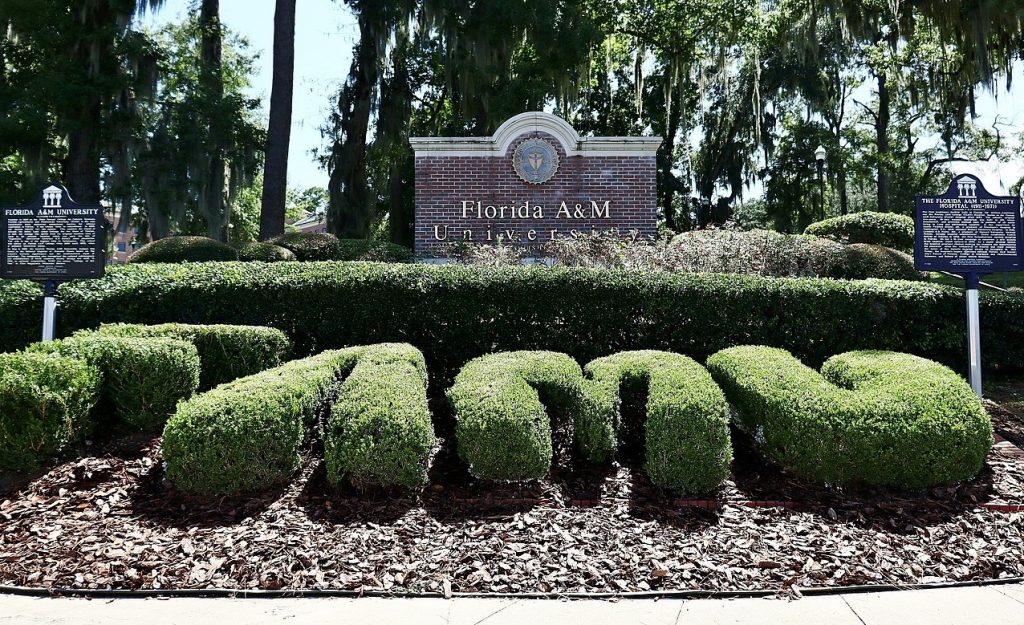Courtesy of Florida A&M University
Florida A&M University has partnered with the U.S. Department of Agriculture (USDA) to help build a more equitable and diverse workforce in food, agriculture, natural resources, and human sciences. FAMU was selected as one of eight 1890 Historically Black Land-grant institutions to receive a combined $18.1 million investment in minority-serving institutions funded by the Inflation Reduction Act.
“The secured funds from the College of Agriculture and Food Sciences (CAFS) underscores the priority we have set forth as a university that targets student success and academic excellence related to faculty productivity,” said Provost/Vice President for Academic Affairs Allyson Watson, Ph.D.
Lambert H.B. Kanga, Ph.D., director of the Center for Biological Control, is the principal investigator on a $10 million grant, “Developing the Next Generation of Minority Leaders in Pest Management for Food and Agriculture in a Changing Climate”, funded under the NIFA NextGEN Program. The program is concerned with the development of future leaders in entomological studies equipped with much-needed skills to cope with the challenges of climate change, and foster interest and excitement in pest management through real world applications and interactive and digital learning tools.
FAMU is the lead institution with Fort Valley State University, University of Florida and USDA ARS CMAVE in a consortium. Associate Professor Muhammad Haseeb, Ph.D. and Assistant Professor Anamika Sharma, Ph.D. from FAMU will serve as co-principal investigators.
Professor Kanga is a distinguished researcher and chair of the Entomology Program at FAMU. He and his team will use the funding to address the shortage of minorities in the professions of pest management. This multifaceted project will include experiential learning, leadership, and entrepreneurship to train secondary school and college students.
“I am truly excited to receive this unprecedented award,” said Kanga. “It will create a critical mass of holistically, well-trained millennial leaders in the professions of agricultural sciences
Harriett A. Paul, director of International Agriculture Programs and the Center for International Agricultural Trade Development Research and Training (CIATDRT), is the Co-PI on a $10 million grant, “Generating and Sustaining the Next Generation of the Food, Agriculture, Natural Resources, and Human Sciences (FANR) Workforce Through International Experiential Learning, Outreach and Engagement”.
The grant was developed through a partnership with the University of Maryland Eastern Shore, Southern University, and Kentucky State University.
FAMU’s CIATDRT will receive $2.2 million to help develop and sustain a global workforce through new student scholarships, global experiential learning, and an expanded global network of strategic partners. “This is an exceptional opportunity for our 1890 Historically Black Land-Grant System to elevate our student preparation to a new level of excellence and truly equip them with career ready skills at the global level,” Paul said.
During the next five years, two FAMU CAFS faculty members will collaborate in a consortium led by North Carolina A&T State University as a part of a comprehensive plan “From Learning to Leading: Cultivating the Next Generation of Diverse Food and Agricultural Professionals Program” (NextGen).
Neil James, Ph.D., CAFS associate dean for academic programs, and Conchita Newman, assistant director of the Cooperative Extension Program, will receive $1.1 million as co-principal investigators to help strengthen the college-to-career ready pipeline for employment at the USDA and related industries.
All three grants are part of the NextGen comprehensive plan, “From Learning to Leading: Cultivating the Next Generation of Diverse Food and Agricultural Professionals Program.”
For the last three years, CAFS has received the largest quantity of grant funding it has ever received in the history of the university dating back to its founding in 1887. CAFS Dean Robert Taylor, Ph.D. estimates the college should receive a total of $35.9 million in grant funding for the 2022-2023 fiscal year, which ends July 1.

